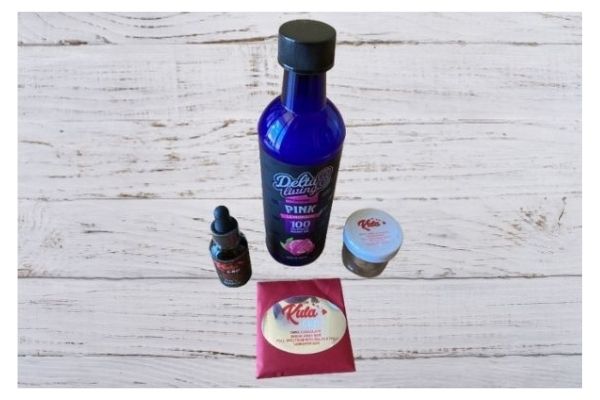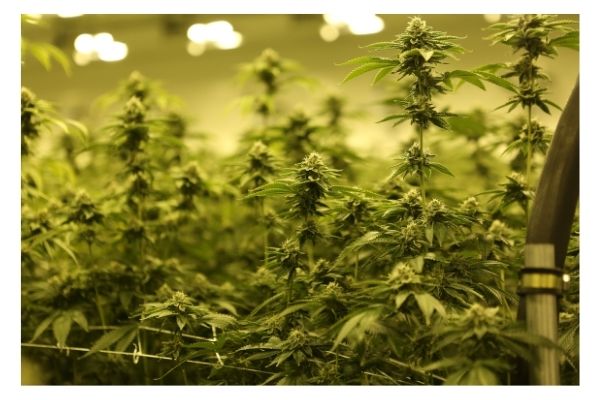Do you know the differences between Delta 8 and Delta 10?
With hemp-derived cannabinoids are exploding into popularity, more and more people are turning to these natural compounds to boost their health and wellness.
As a result, products infused with Delta 8 THC, Delta 9 THC, and Delta 10 THC are popping in every corner of the market.
The demand for legalized hemp and its compounds is witnessing an unprecedented surge after the introduction of Farm Bill 2018.
Despite the ever-growing demand for weed-extracted compounds, there is much confusion about the basic facts, and several people want to know what these compounds are and what the difference is between them.
If you are one of them who are looking to update their knowledge on popular weed extracts such as Delta 8, Delta 9, and Delta 10, keep on reading this article.
In the following lines, we will shed light on key information about these weed-derived compounds.
What is Delta 8 THC?
Delta 8 THC is one of over 100 cannabinoids that naturally occur in the cannabis plant. Think of it as a cousin of much famous Delta-9 THC but with much calmer and milder effects.
∆8-THC is an isomer of Delta 9, which means they have a similar formula, but their atoms are arranged differently. This difference causes both cannabinoids to exhibit different properties.
More about Delta 8, 【click here】
What is Delta 10 THC?

Delta 10 THC is a new market sensation that has created a lot of buzz in the legal hemp market. This brand new, cutting-edge cannabinoid demonstrates similar effects that are associated with Delta 8 THC.
It occurs in traces in the natural cannabis plant. This accidentally discovered cannabinoid occurs in a minuscule amount, and it is a great challenge to extract it. Successful extraction of Delta 10 requires modern technology and advanced extraction techniques.
Despite both D8 and D10 enjoy some similarities, they are different from each other in important ways. Let’s have a look at their differences.
Interaction with the endocannabinoid system
Since Delta 10 is a recently discovered compound, we don’t know much about its interaction with the body. But it is likely to interact with the body similarly as does the other THC compound – Delta 8 and Delta 9.
Delta 8 THC sticks to CB1 receptors of the central nervous system, mainly in the brain, and it also tends to interact with CB2 receptors. Therefore, Delta 10 is likely to interact and react with our endocannabinoid system (ECS) in the same manner as Delta 8 THC does.
Psychoactive effects of Delta 8 and Delta 10
All THC compounds cause psychotropic effects by interacting with the body’s ECS system. However, each cannabinoid produces a different kind of high.
Delta 9 THC produces a high characterized by euphoria, relaxation, increased appetite along with negative experiences such as paranoia, delusions, panic, anxiety, and even in some cases psychosis.
The high caused by Delta 8 THC is clear and non-intoxicating. Moreover, the ability of this hemp-derived compound to interact with CB1 and CB2 receptors offers users several therapeutic effects. It means you will experience a clear, less sedative high without any confusion and anxiety.
Since Delta 10 THC is a relatively latest discovery, scientific research is not available to shed light on its effects. The anecdotal users’ reports suggest Delta 10 is less potent than its cousins – Delta 9 & Delta 8.
It produces a head buzz instead of a body high. The weaker affinity of Delta 10 to bind with CB1 receptors results in mild effects. Therefore, you can expect an uplifting and focused high with no paranoia.
Structure of Delta 8 and Delta 10

Both Delta 8 and Delta 10 are isomers of Delta 9 THC. It means they have a similar chemical formula but with a different structure.
This structural difference between all THC compounds – Delta 8, Delta 9 & Delta10 – affects how these cannabinoids interact with ECS cannabinoid receptors and produce different effects.
Delta 10 THC, with a weaker tendency to bind with ECS receptors, causes mildest effects than its other two siblings.
Legality issues
Delta 9 THC is illegal federally except in few states. While Delta 8 and Delta 10 are federally legal as long as they are derived from industrial hemp that contains less than 0.3% Delta 9 THC.
Different states have different rules regarding the legal status of hemp-derived THC cannabinoids. For example, in Texas, both Delta 8 and Delta 9 are legal.
If you visit Hawaii, it is perfectly alright for you to consume Delta 8 and Delta 10 products, except when you are underage.
Take away

Delta 10 THC is an exciting new cannabinoid with distinctive characteristics and mild psychoactive effects. You can enjoy the therapeutic effects associated with Delta 9 or Delta 8 while experiencing much lower psychotropic effects.
Since Delta 10 THC is legal in Hawaii, you can enjoy the calming energy and uplifting feel that come with the consumption of this new cannabinoid.
Thank you for reading.
If you found this post helpful, please consider sharing it with a friend.
【Delta 8】best delta 8 staff from hawaii, click here.

